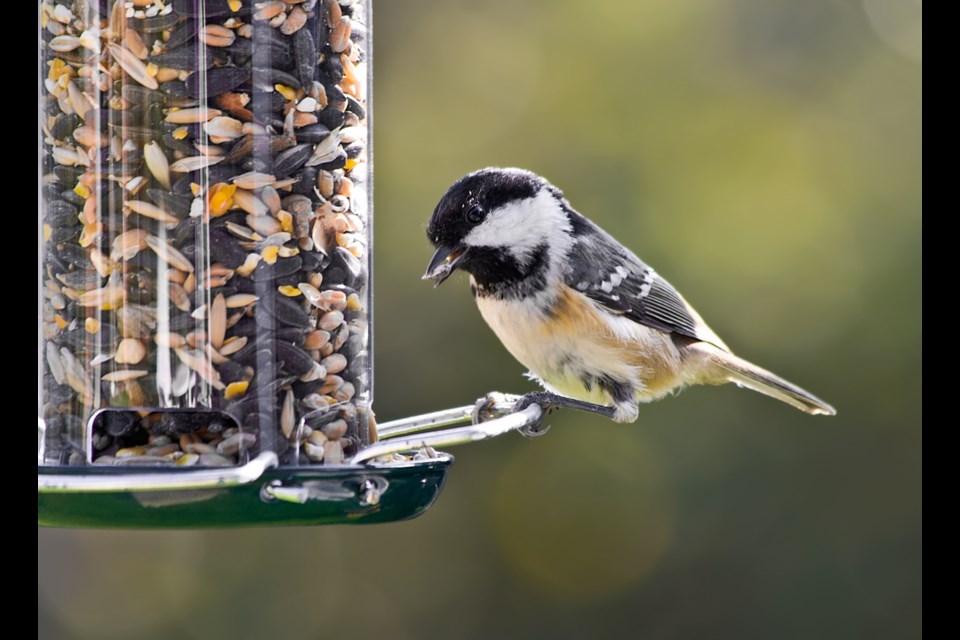Are you new to birdwatching and bird feeding—perhaps a pandemic pastime you picked up and continue to enjoy? Or have you been an avid birder for years?
Either way, you're not alone. In fact, birding has become the second largest hobby in North America behind gardening.
The best bird-friendly backyard is made up of a few crucial components to help you extend an invitation to wild birds year-round. In no time, they'll become regular visitors delivering you hours of joy, entertainment and therapeutic effects.
Wild Birds Unlimited of North Vancouver is a backyard bird feeding and nature specialty store that provides everything you'll need to maintain a rewarding and positive experience from your bird feeding hobby.
"We have the right seed and bird food and the right feeders to attract birds into your yard," says Mark Eburne, co-owner of the North Vancouver store with his wife Laura, plus a Vancouver location.
"As bird feeding experts, education is the biggest component of our business. You can buy bird seed in a lot of places, but arguably, we can show you the best ones. It's our knowledge that comes with the food that sets us apart; that's our uniqueness."
Wild Birds Unlimited not only sells high-quality products including bird feeders, bird food, bird houses and bird baths, they're more than a merchandise source. The highly-trained staff pride themselves on dispensing expert information on local species, as well as, strategies to draw wild birds to your backyard and advice on how to sustain a healthy and responsible habitat.
Follow these birding tips to attract a greater variety of wild birds, and to support local and migrating species and your new feathered friends during spring's nesting season.
1. Home sweet home
To create the best overall environment, keep the habitat so there are territories for birds to fly to and hide, such as bushes where they can feel protected. Plant native plants for shelter, and keep them pesticide free.
Place nest boxes in protected areas of your yard. "When putting up a nest box, ensure the hole size is correct for the species," advises Eburne. "For example, chickadees and wrens require 1 1/8" sized-hole, and no front perch. The size inside is also important and we can provide recommendations. We have nest boxes for chickadees, flickers, wrens, robins and owl boxes—lots of different types—and we'll help you select the right one for your area."
2. Food for thought
To keep birds coming back to your feeders, provide high quality and appropriate bird food in different spots of your backyard to attract different species. Ground feeders and perching birds eat from three food groups: peanuts, suet and loose seed. Within each group there are specific types and several different blends.
"People could have a feeder of each and would get 99 percent of the birds to their feeders," says Eburne. "Avoid corn and millet unless acquired because perching birds don’t eat it and toss it to the ground, which can attract critters. We always use trays for ground feeders to keep food clean and organized, and reduce the potential of rodents."
To squirrel-proof feeders and to also block rodent or pet access, use squirrel-resistant baffles. "There's a number of different solutions depending on the application," Eburne says.
For hummingbirds, use 4:1 mixture, water to plain white sugar, which is most similar to flower nectar. Refrain from toxic red liquids, such as Kool-Aid, and change the mixture every two days.
Keep up your feeders throughout the year with different types of foods during different seasons. Most importantly, keep your feeders clean with routine scrubbing. Use regular soap and water, and mild bleach (if necessary), recommends Eburne.
3. Bird baths
A clean water source should be maintained year-round. Eburne suggests adding ice in your bird bath during the morning to keep it cool and fresh.
"There's heaters for when it freezes and bubblers and other devices that help circulate the water, which keeps it cleaner," says Eburne. Standing water can attract mosquitos and other insects, so he advocates moving water at all times.
For more information, visit northvancouver.wbu.com or call 604-988-2121.



